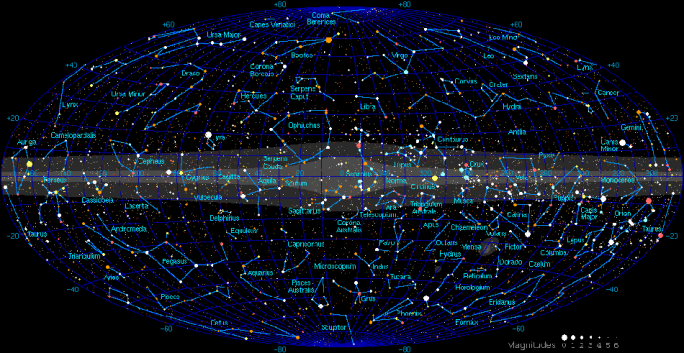mulierrex
 Scribe
Scribe
I tried Googling this, but it only gave me north/south hemispheres.
My planet is an ordinary sphere -- or close enough --, but there are only habitable land masses in the northern hemisphere.
Would people living in those places see constellations in the same position every night? In terms of our world, do people in Kazakhstan see the constellations the exact same way someone in California might (as long as it's nighttime of course)?
I really don't know if this is common knowledge and I sound dumb asking, but, here we go anyway...
My planet is an ordinary sphere -- or close enough --, but there are only habitable land masses in the northern hemisphere.
Would people living in those places see constellations in the same position every night? In terms of our world, do people in Kazakhstan see the constellations the exact same way someone in California might (as long as it's nighttime of course)?
I really don't know if this is common knowledge and I sound dumb asking, but, here we go anyway...
Last edited:

 Myth Weaver
Myth Weaver Maester
Maester